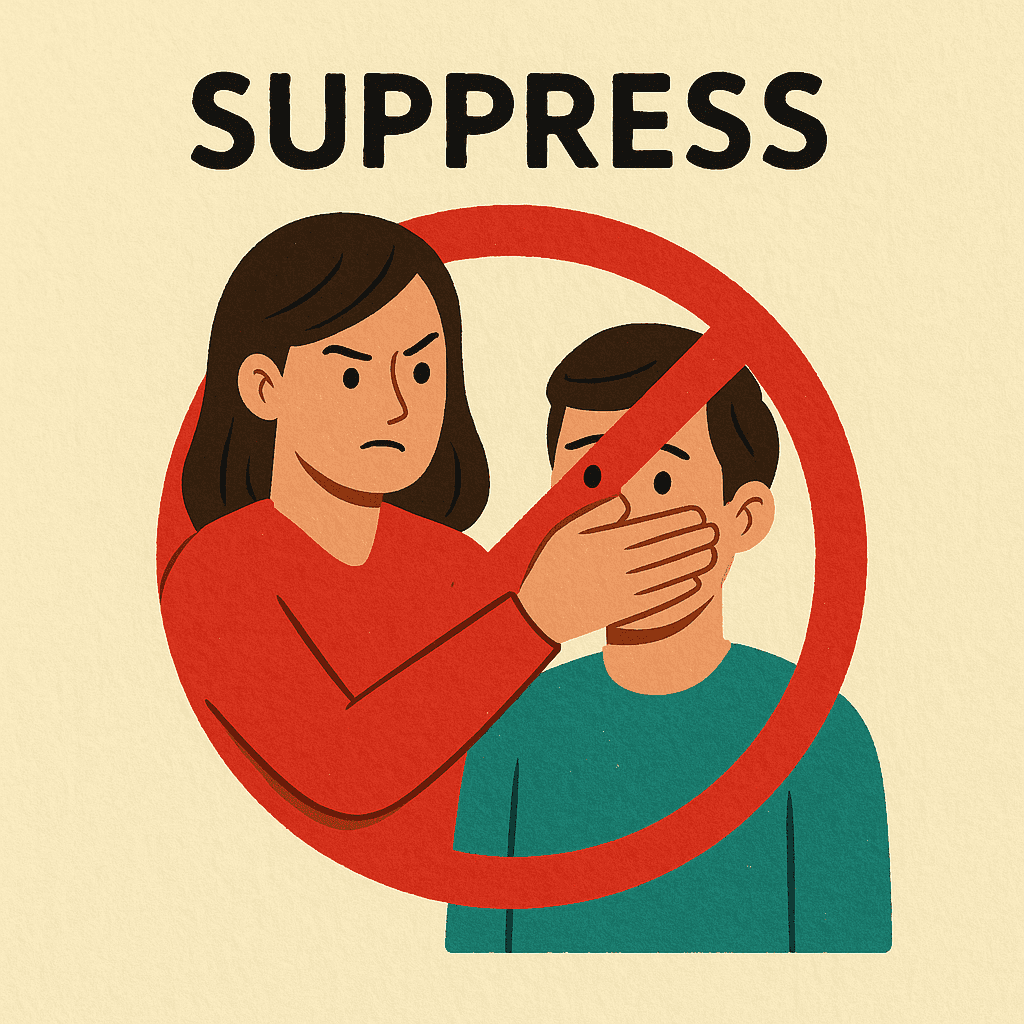Meaning
The verb suppress means to stop something by force, to prevent something from being expressed, or to control an action, feeling, or information. It often conveys the idea of holding back or restraining.
Grammar and Usage
-
Part of speech: Verb
-
Transitivity: Transitive (always takes an object)
-
Typical structures:
- suppress + noun
- suppress + feeling/emotion
- suppress + movement/rebellion
Common Phrases
- suppress a smile – try not to show a smile
- suppress evidence – prevent evidence from being shown
- suppress opposition – stop people from resisting or protesting
- suppress information – hide or withhold information
Collocations
- suppress + laughter
- suppress + rebellion/uprising
- suppress + desire/urge
- suppress + anger/emotion
- suppress + news/report
Examples
- The government tried to suppress the protest by sending in the police.
- She couldn’t suppress her laughter when she heard the joke.
- He had to suppress his anger during the meeting.
- The company was accused of suppressing evidence in the case.
- She bit her lip to suppress a smile.
- The dictator used the army to suppress the uprising.
- He tried to suppress his feelings for her, but it was impossible.
- The media claimed that the report was deliberately suppressed.
Synonyms or Related
- restrain
- repress
- quell
- stifle
- silence
- subdue
